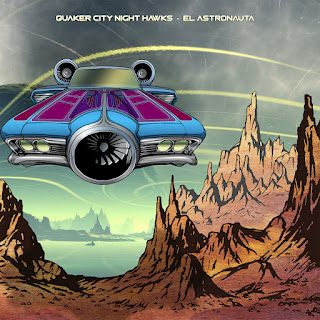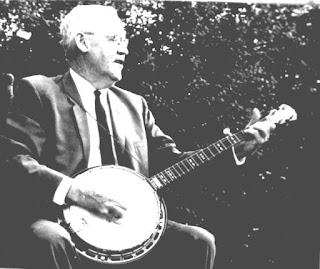 |
| TOTO, voted America's Sexiest Band 1982 |
A while ago I penned a review of the top ten songs on Spotify called 'Hourglass', prompted by a phase where I was listening to the Squeeze song almost obsessively. Undoubtedly, the format was a crashing failure, and I've never returned to that particular puddle of vomit...until today. We're back, baby!
This time around, it's TOTO's incredible 'Girl Goodbye' that's been getting the juices flowing. For those of you uninitiated to the pleasures of melodic rock, TOTO were the mightiest of musos, virtually carrying the entire US AOR industry on its back during the late 1970s and early 1980s. As well as massive songs like 'Hold The Line', 'Rosanna' and 'Africa', its constituent members guested on any number of smooth classics in the yacht rock wheelhouse; the discography section of drummer Jeff Porcaro's Wikipedia page is
quite something to behold.
The great thing about 'Girl Goodbye' is that not only does it retain TOTO's trademark facility with a soaring chorus, but it's got some attitude and aggression to it that one doesn't readily associate with the band. It got me thinking - there must be plenty of other kiss-off songs with the words 'girl' and 'goodbye' in the title, so I've fired up Spotify and given 'em a listen.
Artist: TOTO
Song: 'Girl Goodbye'
Rivals both Boney M's 'Rasputin' and Squeeze's 'Hourglass' as the greatest song ever recorded. Singer Bobby Kimball is all over this piece; curiously, the lyrics fall into a strange yacht rock preoccupation of being a bad-ass criminal on the run, a la Boz Scaggs' 'Lido Shuffle' and Christopher Cross' 'Ride Like the Wind'. Sample lyrics:
Yeah I'm out on the run,
Got some heat, got a gun
Objectively very cool stuff I'm sure you'll agree. What's 'heat' doing here, I wonder? If it's the 'heat' that comes from police attention, fair enough; but it's a reference to a firearm, it's a tautology because he mentions that very fact in the next breath.
Oh there's smoke in the air,
And there's blood everywhere
But I'm hoping that the white man don't recognise me
Look pal, you're in TOTO - I say this as a man of almost spectral pallor, but if there's one thing us white people recognise and love, it's this kind of overblown bullshit pomp-rock! Nonetheless, this slams, Steve Lukather plays some cool riffs and I like the keyboard at the start. 10/10
Artist: Squeeze
Song: 'Goodbye Girl'
Making their second appearance in this format, it's Squeeze. And it's the usual wide-eyed kitchen-sink earnestness from these boys. This time, Squeeze are not ditching their old lady to make a run for the border, no - true to form, they're the sadsacks left on their lonesome, getting robbed for good measure. It's charming pop-rock with a percussion track that sounds like a commuter train pulling into a station with a short platform. 7/10
Artist: Go West
Song: 'Goodbye Girl'
This features one of the most horrendous synth tones ever devised. I wouldn't be surprised if it was initially perfected as part of a secret non-lethal weapons programme. Anyway, it crawls along with all the energy of an arthritic snail, but I have to concede the vocals are good and there is a little bit of wobbly Mick Karn / Pino Palladino style fretless bass, which made me laugh. 4/10
Artist: David Gates
Song: 'Goodbye Girl'
Yup, it's the guy from Bread - I suppose TOTO owe him and his ilk for popularising a brand of mature soft-rock with a focus on chorus hooks and high production values. This is exactly as I had imagined it - a pretty soppy piano 'n' strings ballad with, yes, a big chorus hook. Gates sounds like a schlub, which actually works well given the context. It's okay. 6/10
Artist: Broadcast
Song: 'Goodbye Girls'
The most impressive thing about this slice of lo-fi postmodernism is that they get the word 'counterparts' into the lyrics. The vocals are faux-naif psychedelic, the electronics sound like a fax machine performing an extended death scene. Decent, I suppose, if that brand of hauntology floats your boat. 5/10
Artist: Luke Bryan
Song: 'Goodbye Girl'
Some 'cry into your whiskey' country corn-pone here courtesy of Mr Bryan. This kind of music sounds almost focus-grouped; just enough lap steel to offer a patina of regional authenticity, a lolloping pace entirely fit for such a mournsome subject and a vocals that conjure up a regular ol' boy who's tough, but hurtin'. In other words, the most horribly banal Nashville conveyor belt pabulum imaginable. 2/10
Artist: Rumer
Song: 'Goodbye Girl'
Does this have both a zither and a harmonica on it? That's neat. A little nondescript in the verses, but Rumer has a voice suited to confessional, intimate music, and the chorus is rather lovely, nodding as it does to the girl group sound of the Ronettes. Not bad! 7/10
Artist: Peter Criss
Song: 'Kiss The Girl Goodbye'
So it's KISS' very own street fightin' man on his first solo album here (which coincided of debut solos from the other three members of the hottest band in the world). I recall reading, once upon a time, that Criss considered his voice analogous to Rod Stewart; yeah, perhaps whilst he was getting his stomach pumped. What a fucking mess this is; this is like a Big Star ballad being played by a band who have never heard Big Star before. 1/10
Artist: Art Farmer
Song: 'Goodbye, Old Girl'
When I saw the song title I thought to myself, "is this going to be about a horse?". It's not; rather, it's trumpet player Art Farmer blowing a sweet, warm and emotional slow jazz number. It's a joy to hear this kind of unfiltered, in-the-moment playing, both from Farmer but also his pianist accompanist, who creates a bed of twinkling arpeggios for the lead instrument to ease back into. Beautiful. 9/10
Artist: Aaron Watson
Song: 'Kiss That Girl Goodbye'
What did I give the Luke Bryan number? Two out of ten? Well, it's twice as good as this noisy bro-country slurry. I once endured a nine-hour drive from Colorado to Kansas where the radio station was permanently tuned to this kind of dogshit, and I swear I could feel my IQ dropping in real time. At least Bryan tries to connect with some semblance of human emotion; this is eighty percent proof moonshine nihilism, and seems to revel in the fact. 1/10 for somewhat resembling music.
There's your lot - of course, TOTO emerge triumphant, but I could listen to that Art Farmer track again and again, plus I was pleasantly surprised by Rumer's offering in the 'goodbye girl / girl goodbye' stakes. Perhaps I'll give this format another go sometime? Maybe one day I'll actually make an entertaining fist of it? Who can say?
















